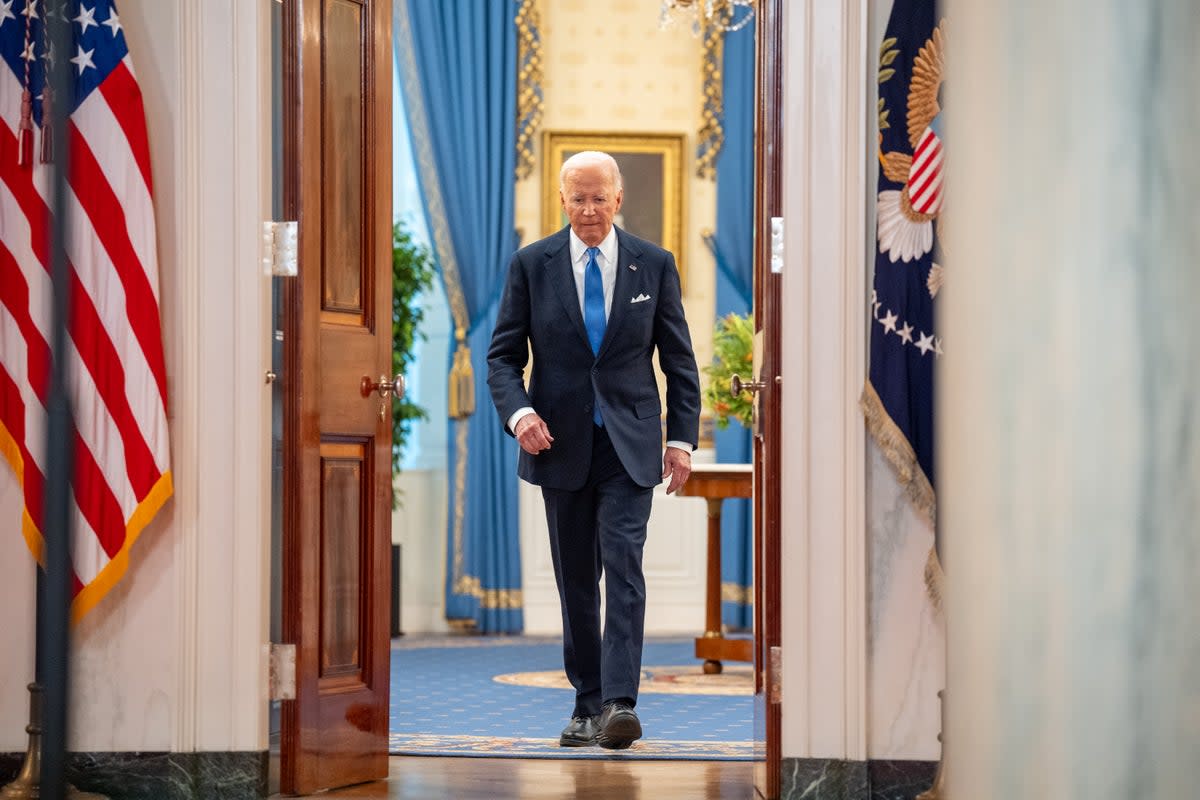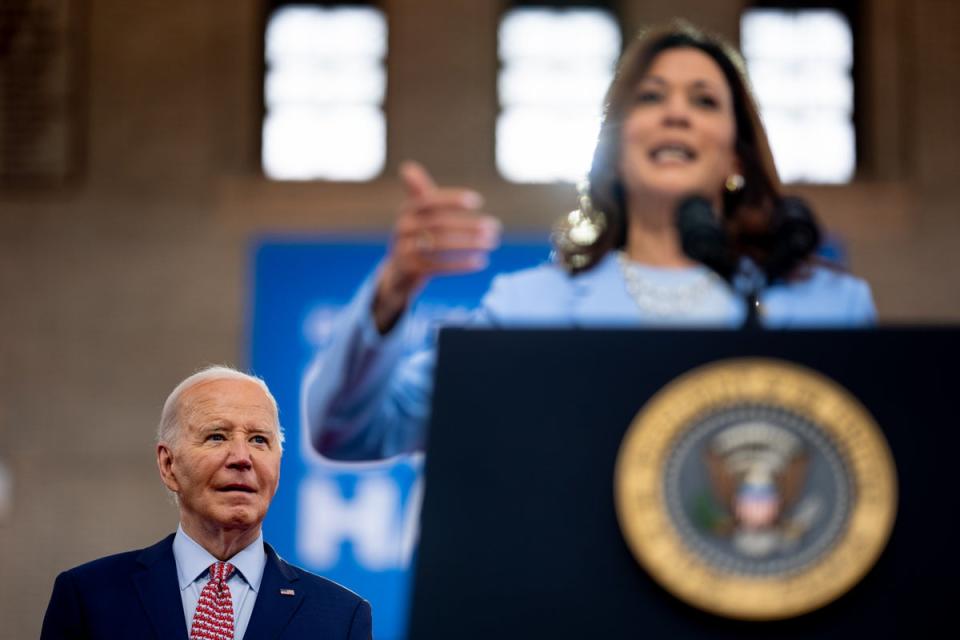How would replacing Biden actually work? The answer is as murky as the president’s stance on his future

Joe Biden seemed to give mixed signals about the future of his presidential campaign after his poor performance at last Thursday’s debate. While the Biden campaign on Wednesday jumped to announce that it had outraised Donald Trump in June, pulling in $127m to his $118m, rumors were swirling about whether the president could effectively continue in the race.
Insiders told The Independent that they believe there is “no question” Vice President Kamala Harris would receive the baton if Biden chose not to run in November.
But a Biden campaign spokesperson, Seth Schuster, told The Independent that the president is “absolutely not dropping out.”
Harris would never openly knife her boss. But the possibility is clearly being discussed among some Democrats.
If Biden makes the decision to step aside, that’s only the first question answered. Democrats will then have to pick a new presidential nominee. And the logistics surrounding that are not simple.
The modern primary campaigning and nominating process began in earnest during John F Kennedy’s 1960 run for president. Prior to that, nominating a candidate bore more resemblance to proverbial smoke-filled rooms where party elders select the nominee away from the eyes and ears of the public.
That’s infeasible in this moment, particularly for a party that bills itself as a defender of democracy.

At the same time, Democrats would risk a battle royale if too many candidates emerge. Should Biden stand down, the process would have to be carefully handled to make sure this didn’t scupper the party’s chances against Donald Trump in November.
Enter James Zogby, a member of the Democratic National Committee who worked on Jesse Jackson’s campaigns and whom Bernie Sanders nominated to serve on the party platform committee in 2016. This week Zogby sent a memo, seen by The Independent, to DNC Chairman Jaime Harrison laying out how to replace Biden in the event that he does step down.
“The central idea is to create a process that is open, transparent, and energizing, while, at the same time, legitimate and democratic,” the memo reads. “And it is one that is deeply respectful of the president and his accomplishments.”
The plan would require that any prospective candidate secure the endorsement of 40 committee members — since most members are elected officials — and that they must include four members from each region.
After the deadline, candidates would appear during televised events to make their case to voters. That would culminate in a nominating process at the Democratic National Convention in August.
“It is not a coronation,” the memo says. “...For at least one month, national media will be focused on our candidates and our exciting process, drawing sharp contrast with the antics of GOP nominee. Given that we can likely predict the pool of potential candidates (Vice President Harris, Governors, Senators, Members of Congress) — the debate they will have will no doubt be respectful and substantive.”
Zogby’s proposal is an audacious one. It would require TV networks to comply and broadcast the debate. And despite his optimism, there is no guarantee that the contest for delegates would be a clean fight.
Indeed, the old ways were rife with kickbacks, corruption and back-scratching. And Republicans would make hay about the disarray that Democrats face.
But it might be one of the few options the party has. In 2020, Democratic primary voters chose Biden almost as soon as he won in South Carolina and then, as a way to prohibit a challenger, the party moved the state up the calendar in 2024. Democrats ostracized heretics like Representative Dean Phillips who suggested something different, even if he was an admittedly imperfect messenger for his cause.
As of now, it is unclear whether the president would actually step aside. But if Biden does exit the stage, many Democrats might want to take a look at Zogby’s proposal — especially considering a recent post-debate poll showed Biden losing to Trump in November.
The president has tried to explain away his debate performance with a variety of excuses. On Tuesday, he suggested that he was exhausted at the debate due to jet lag. He told donors that “I decided to travel around the world a couple of times,” before taking the stage, adding: “I didn’t listen to my staff” and “I almost fell asleep onstage.” He then apologized for the faltering performance that sent Democrats into crisis.
But this excuse seems to be — to borrow a favorite word of the president — malarkey. Biden spent the better part of a week preparing for the debate. He went to Camp David to workshop his responses. Indeed, Republicans complained that Biden had spent his time cloistered to prepare instead of holding rallies like Trump did.
